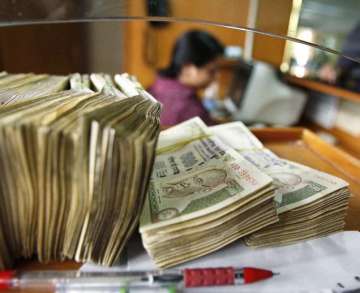Following the central government’s warning that cash deposits above the Rs 2.5 lakh threshold under the 50-day window could attract tax imposition plus a 200 per cent penalty in case of income mismatch, Income Tax (I-T) officials seem to be in a dilemma on how to go about imposing the penalty.
After PM Modi’s announcement of scrapping Rs 500 and Rs 1,000 notes from November 8 midnight, revenue secretary Hashmukh Adhia said that any mismatch with income declared by the account holder will be treated as a case of tax evasion.
"We would be getting reports of all cash deposited during the period of November 10 to December 30, 2016, above a threshold of Rs 2.5 lakh in every account,” an Economics Times report quoted Adhia as saying.
“The (tax) department would do matching of this with income returns filed by the depositors. And suitable action may follow," he added.
"This would be treated as a case of tax evasion and the tax amount plus a penalty of 200 per cent of the tax payable would be levied as per the Section 270(A) of the Income Tax Act," notes revenue secretary said.
According to the Economics Times report, taxmen in several cities have told their superiors that there is no provision in the law to slap penalty on such cash being deposited in banks.
Reacting on this announcement, a senior tax official told Economics Times: “There can be penalty on escaped income. But what do you do if someone deposits a crore with bank, pays 33% tax, and discloses the amount as income in his tax return filed for the assessment year ’17-18? Even if it’s driven by demonetisation, this is technically voluntary declaration and shown as ‘income from other source’.
“This has been discussed in our meetings over the past few days... To impose penalty on this money, there has to be retrospective amendment of the income tax law.”
A 200 per cent penalty would mean the entire declared amount going into the state coffer.
The questions troubling those with large, unexplained cash deposits are: Will the I-T office come after them if they are unable to spell out the fund source?
Even if I-T spares them, will the service tax and other indirect departments chase them? And finally, will the I-T office share the information with Enforcement Directorate which in turn can invoke the harsh anti-money laundering law?
“If the source of the fund relates to an admitted activity which is subject to levy of indirect tax, then even if the I-T department accepts the source, there is always the possibility that other agencies may step in,” said senior chartered accountant Dilip Lakhani.
Indeed, the swelling bank deposits could pose challenge for the I-T department. Several small and mid-sized businesses, traders and individual borrowers in the farm sector have deposited cash to resolve their non-performing loans and initiate one-time settlements.
Latest India News

